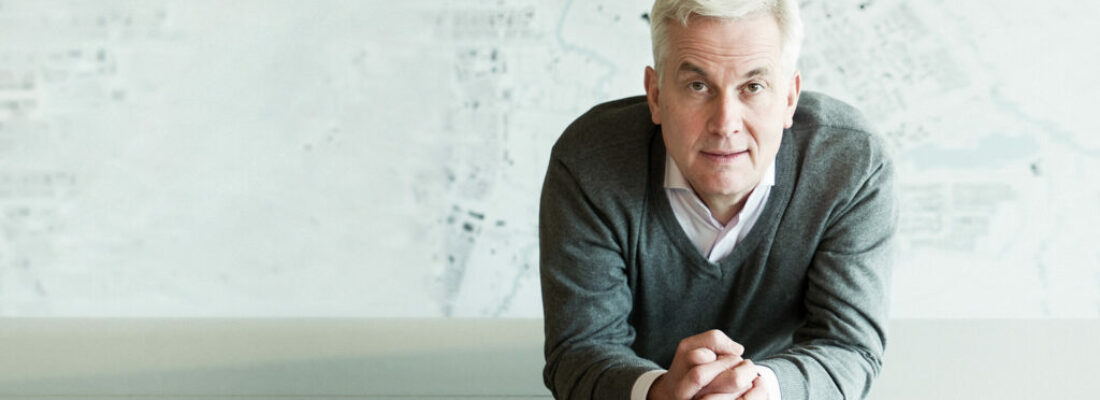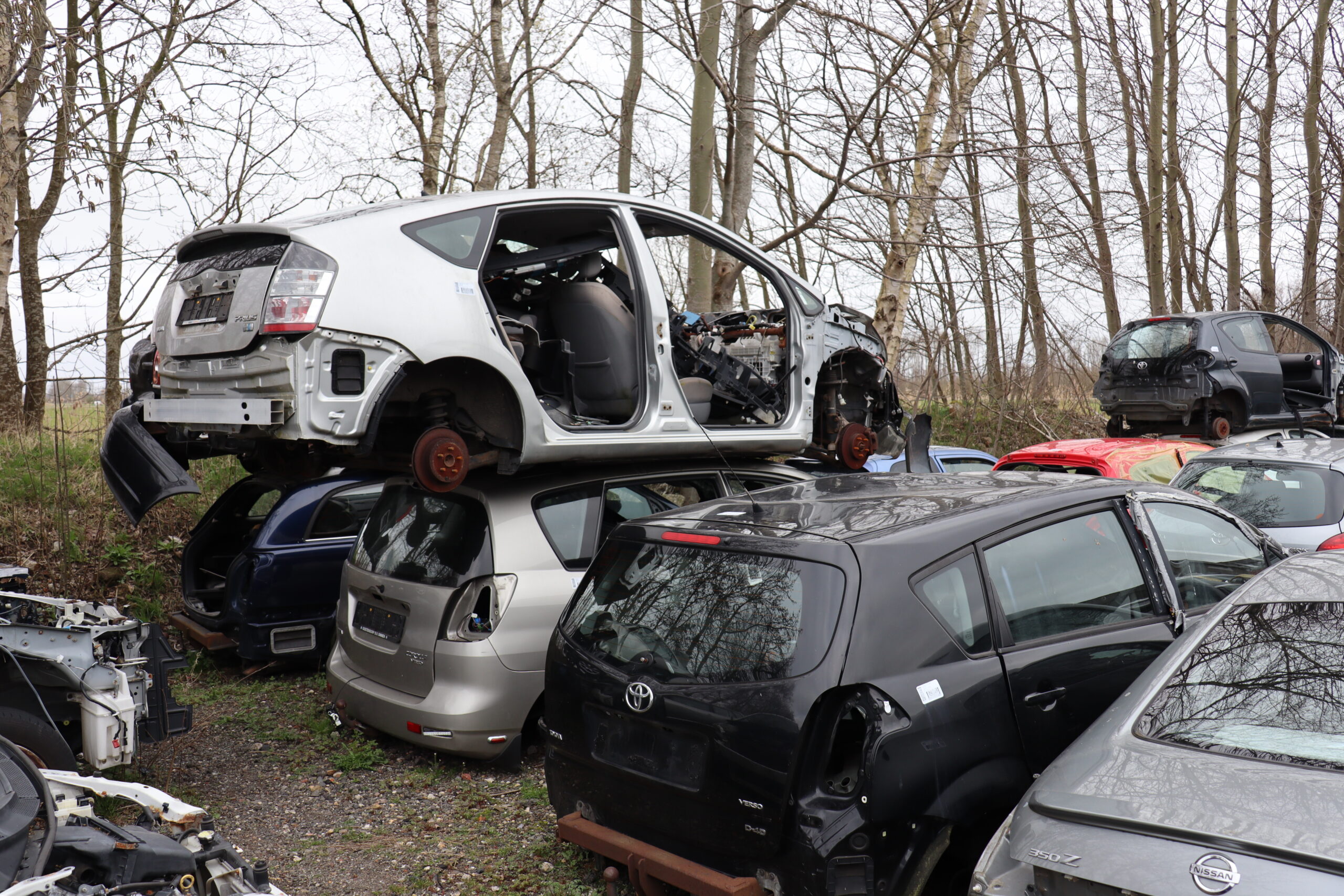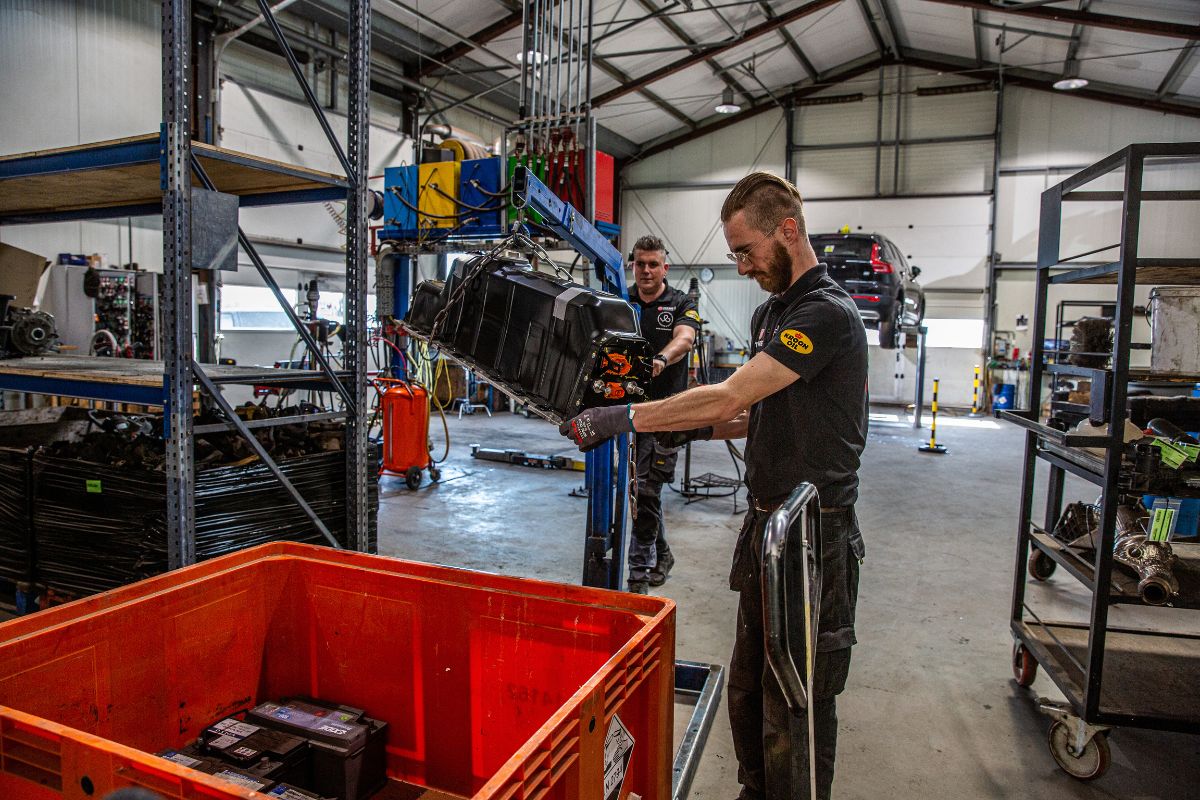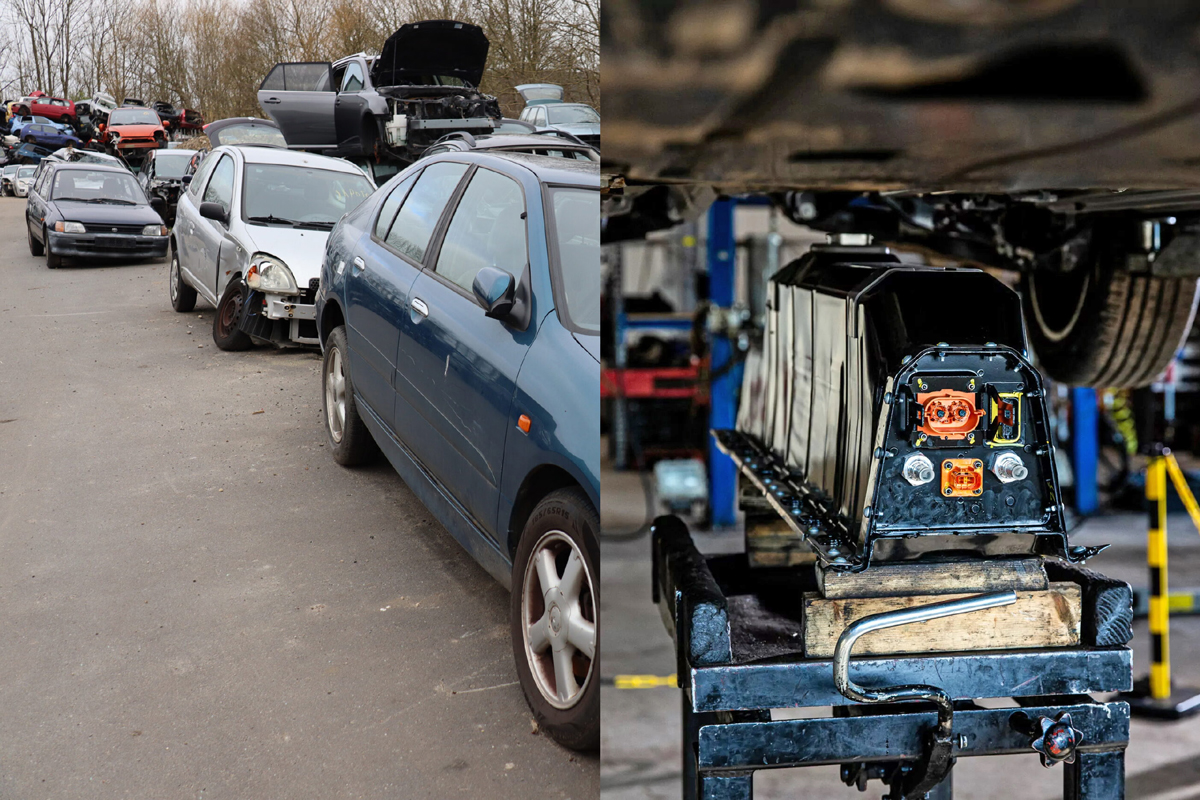Thomas Rau may very well be the most radical thinker when it comes to sustainability. Like in other industries, nearly everything should be done differently in the car industry, claims this well-known architect and developer of green business models. An inspiring interview about opportunism and responsibility. “Materials need to remain pure.”
Who is Thomas Rau?
Thomas Rau (Germany, 1960) is an entrepreneur, architect, innovator and visionary. His motto is ‘guided by the future.’ In everything he does, he bases his actions on what is needed in the future and not what is feasible today. Every year, Rau ranks among the top in the Sustainable 100 compiled by the daily newspaper Trouw and was number 1 in the ABN AMRO Sustainable 50 list in 2018. He was also proclaimed Architect of the Year 2013. In 2010, he established Turntoo, where he works on new business models for the circular economy. “From possession to performance, light instead of light bulbs, i.e. from ownership to access.” He came up with the concept of Light as a Service (Pay per Lux), by which, instead of selling light bulbs, lighting is offered as a service.
Thomas Rau has such a different perspective that he is not impressed by the Dutch recycling percentage of more than 95%. “That refers to weight, not volume,” says this architect and sustainability visionary. “Cars contain a lot of metal parts. I think we need to be having a totally different discussion.” All right.
Rau at his office in Amsterdam-Noord: “Let’s start on a positive note.” Fine by me. But we all know it will be followed by blunt criticism. That can only be expected if you ask him to explain his vision on how we produce things and subsequently dispose of them. This 58-year-old German Dutchman has written a fascinating book about this called Material Matters. He was also the main focus in 2015 of an episode of VPRO’s Tegenlicht: Het Einde van Bezit (The End of Possession). Steven van Eijck, Chairman of the RAI Vereniging, stated in August that he was a great admirer of Rau.
Rau starts by saying, “The car industry does a lot of things right.” “Firstly, there is not a single screw in a car that at least a thousand people have claimed is necessary. A lot of other sectors could learn from this. The construction industry, for instance, still tinkers around. But a car is the result of a process that entails thinking ahead. If there is a safety issue, the manufacturer knows exactly which series this involves and the owner is promptly sent a letter and the problem is solved. In other words, the production process is exceptionally well organised, documented and registered.”
“But….,” he continues, “Everything is organised in a forward, not backward direction in the chain. What the owner does with the car is left to chance. One thing is certain: the car never returns to the manufacturer. That’s because responsibility has been placed further down the chain. The final link in the chain is the customer, who naturally cannot be held responsible for this, so the car ends up at a scrapyard.
What follows is the gospel according to Thomas Rau: “We need to agree on how to return things to their origin. This is easier with a service than with a product, in this case automobility.”
What exactly are the benefits for car makers?“Nowadays, car manufacturers need to navigate a jungle to obtain the necessary raw materials. They use these to make a car, which they then sell and then return to the jungle for new raw materials. If you consider a car a mobile raw materials storage depot, this approach is no longer necessary. You simply retrieve the car when appropriate and use the raw materials for a new car. This process is called Material As A Service, which I write about in my book, and it is much more efficient than recycling.”
But how do you go about this?“Meticulously record where the material is located, the quality standard and when it is to be returned. You need to process the raw materials in a manner that enables them to be retrieved from the car one by one and of the right quality. In other words, materials need to remain pure. If you ruin a material, such as with a synthetic chemical compound like in glass fibre, you lose that material.
“I recommend a closed system in order to eliminate the possibility of waste”
We recycle it by shredding and melting it down and then making other things from it. What I’m interested in is maintaining the purity of the ‘limited editions’ that all materials are. We are squandering that purity, mostly through the use of chemical compounds. I recommend a closed system in order to eliminate the possibility of waste. If a car maker is truly unable to use a material in the future, he needs to be able to return it to the supplier.”
Materials are often treated so that the end product is lighter and less energy is required to propel it. This is also good for the environment.“Ha ha, well, that is an exceptionally one-dimensional solution to a highly complex problem. It’s like treating the symptoms without determining the cause. You need to place power and responsibility in the same hands.”
Service instead of productIn Thomas Rau’s vision, manufacturers will make better products if they benefit from a long service life of those products. In other words, they sell a service instead of a product. “Lighting, for instance, can be produced with 30 percent fewer materials and 30 percent less energy.”
Nowadays, claims Rau, manufacturers are deliberately marketing products that are ‘one step shy of defective’, including cars. “Throughout their service life, cars require an average of one-and-a-half times their purchase price in maintenance work.”
Yet manufacturers are taking the necessary steps in terms of raw material recycling. The head of circular production at Renault, Jean-Denis Curt, recently told Greenlight that 33 percent of new Renault cars currently consist of recycled materials. The company is trying to increase this percentage gradually. “Naturally, that’s a great start,” admits Rau. “Renault is definitely on the right track. But this is still simply a matter of optimisation within the existing agreements. In my opinion, other agreements are needed.”
Rau is not a firm believer in half measures. In France, car garages are now legally required to offer customers two options: repair with a new part or with a used and refurbished part. The latter is cheaper. Should we introduce the same law in the Netherlands? “I would prefer if we were only offered refurbished parts. That would be a great initiative. People have their doubts as to whether a second-hand part is equally as good but, like I always say, new is only one step shy of defective. It would be absolutely fantastic if legislators were take more responsibility in this area. They could say, for example, that no car parts may wear out before 300,000 kilometres.”
Of course, a car is not a light bulb, which you simply screw in. A car wears out over time. So, perhaps refurbished is not good enough? Rau unrelentingly responds, “Legislators need to facilitate the new promises. But they’re hoarding the old ones because profit is involved. Car manufacturer lobbies are powerful.”
“Legislators could say: no car parts may wear out before 300,000 kilometres”
Incidentally, Rau is not a big fan of electric cars. “I had a Tesla, but the radiation made me ill. I think it will take another twenty to thirty years before we realise that the electric car was not such a good idea after all.” Rau also believes that manufacturers can do something about this. “Better packaging. Of course, that would cost 8,000 to 10,000 dollars per car.”
Electric cars are much easier to recycle, he admits. “They have fewer parts, which are also much better standardised and registered. A Tesla is nothing more than an iPad on wheels.”
You want to switch from product sales to service provision in order to create a closed system. I can just see car makers thinking that such a switch costs a lot of money, so we’ll just continue with the same old chain.“I think German companies will make the change first. I have close contacts at BMW. They told me, ‘Mr Rau, if we simply gave away our cars on a service basis instead of selling them, we would be in a better position today.’ So, therein lies the problem.”
Rau mentions his young employees doing their thing at their desks. “These young people are not interested in a lease car. They think: where am I going to park that thing? Give me a swap bike or share car instead. A generation is coming of age that experiences ownership as a ball and chain.”




